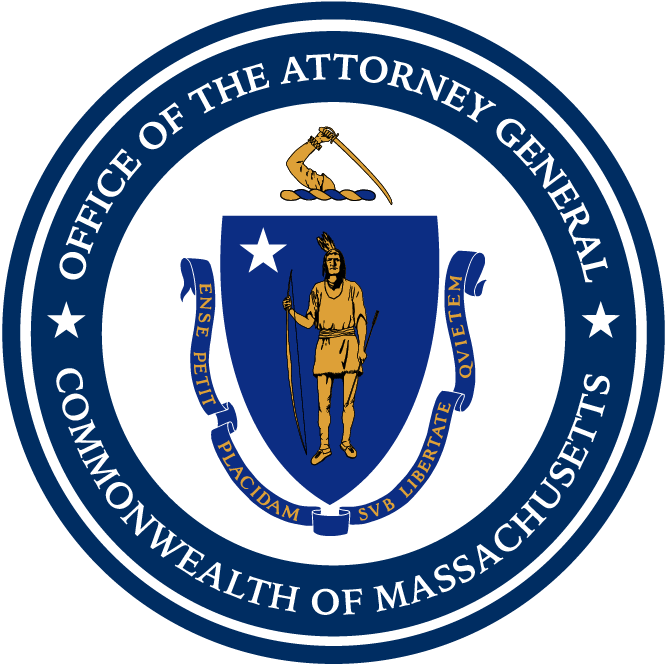The following is a press release from the Massachusetts Attorney General’s office submitted to SOURCE media.
***
[broadstreet zone=”52093″]
BOSTON – With winter approaching, Massachusetts Attorney General Maura Healey has issued guidance for Massachusetts customers experiencing financial hardship due to the COVID-19 pandemic and needing assistance paying home heating bills.
To further assist vulnerable customers in the coming months, the AG’s Office has opened the application period for its third annual Natural Gas Fuel Assistance Grant to provide funding for programs and initiatives designed to help low-income residents with paying or lowering their natural gas heating bills.
“Many residents and business owners across the state are struggling to pay their monthly bills, particularly for essential services like electricity and gas,” AG Healey said. “With the cold weather approaching, it’s critical that customers know their rights and where they can go for help if they need it. We will continue to do our part by educating customers and making funds available to programs working to ensure low-income families in Massachusetts have the financial support they need to say warm this winter.”
[broadstreet zone=”59948″]
Early in the pandemic, AG Healey’s Energy and Telecommunications Division successfully called on the DPU to issue an order preventing utilities from shutting off gas, electric and water service for nonpayment during the public health crisis.
Municipal light plants agreed not to shut off residential service as well. However, this protection ends on November 15 for residents, and for businesses, it ended on August 31.
Today’s guidance provides information to customers about seeking payment assistance programs and other options to lower electric bills:
Call Your Utility Company About Payment Plans
Massachusetts utility companies are offering several financial assistance programs for both residential and small business customers impacted by the pandemic, including flexible payment plans, as well as balance forgiveness programs for those eligible.
The AG’s Office encourages customers who are experiencing difficulty in paying their monthly bills to contact their providers as soon as possible and inquire about available assistance programs and other ways to reduce energy use and lower bills.
Residential and small business customers who enroll in and follow a payment plan with their utility company are protected from having their service shut off for the duration of the plan. Utility companies are authorized to provide payment plans for up to 12 months for residential and small business customers behind in their payments.
[broadstreet zone=”58610″]
Residential customers are still protected from utility disconnection between November 15 and March 15 if they are experiencing a financial hardship and the utility service is needed for heating. More information about the shut-off protections available to qualifying Massachusetts residents can be found here.
Shut-off protection, like the winter heating moratorium, does not mean free utility service, however.
Making no payments during shut-off protection means a larger utility bill to pay later.
The AG’s Office strongly encourages residents that are struggling financially to contact their utility company and discuss enrollment in a payment plan that will also provide shut-off protection and potentially balance forgiveness.
Utility companies also offer customers the option of budget billing, which equalizes monthly payments over the course of 12 months. Utility costs often fluctuate depending on the season, the price of energy, and customer usage, and budget billing can help manage these fluid costs through predictable payments.
[broadstreet zone=”70106″]
Look into Low-Income Assistance Programs
The AG’s Office encourages residents who are experiencing a loss of income to consult with their utility to see if they may qualify for the utility’s low-income rate, arrearage management programs (AMP), or the federal Low-Income Home Energy Assistance Program (LIHEAP). Customers may qualify for low-income assistance, even if they haven’t in the past, as eligibility is based on the last four weeks of gross household income. The AMP provides for an individualized payment plan that, if followed, allows the customer to have forgiven all or a portion of an outstanding unpaid balance. In order to qualify for LIHEAP, customers must have a household income that does not exceed 60 percent of the state median income. The office also urges residents who are struggling to pay their bills to contact their local Community Action Network to determine if they qualify for available financial assistance.

Get an Energy Efficiency Audit
The AG’s Office also recommends that customers consider contacting Mass Save for an energy efficiency audit that should result in lower monthly utility bills over time. Customers also should review their monthly electric and gas bills to determine if they are receiving their electricity through their utility company or a competitive supplier. A report released by the AG’s Office in August 2019 showed that Massachusetts customers who received their electricity from competitive suppliers collectively lost $253 million from July 2015 through June 2018.
For more information about electric, gas and water utilities during the COVID-19 pandemic visit the AG’s resource page, which includes contact information for Massachusetts utility companies. Customers who have concerns about their utility rights during the public health crisis should contact the AG’s consumer assistance hotline at 617-727-8400 or file a complaint online.

Natural Gas Fuel Assistance Grant
This year, the AG’s Natural Gas Fuel Assistance Grant will provide approximately $569,000 in funding to programs run through state agencies, municipalities, and nonprofit organizations that assist Massachusetts households in paying for or lowering their natural gas heating bills. Approximately one in four low-income eligible households in Massachusetts currently receive assistance on their heating bills.
This is the third year of the grant program, which utilizes funds from a settlement the AG’s Office reached with National Grid for improperly charging customers reconnection service fees. Since the grant’s inception, the AG’s Office has awarded more than $2 million to programs and initiatives across the state to help residents pay or lower their monthly heating bills.
The grant application is open to state agencies, municipalities, and nonprofit organizations. Eligible programs may include those that are providing direct assistance to consumers by subsidizing their natural gas heating bills or are providing indirect assistance to consumers by supporting energy efficiency measures designed to lower their natural gas heating bills.
The one-year grant program will start on November 1, 2020 and run through October 31, 2021. Interested applicants can visit the AG’s website www.mass.gov/ago/grants for more information and for application instructions.
Questions about the program can be submitted by email to AGOGrants@mass.gov by 5 p.m. on October 9, 2020.
Applicants must be received by 5 p.m. on October 16, 2020.
[broadstreet zone=”59946″]

